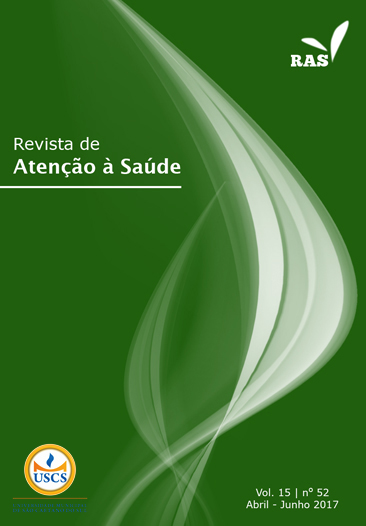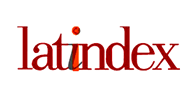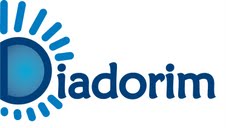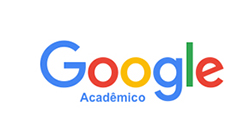Men with prostate cancer diagnosis: challenges and adaptations
DOI:
https://doi.org/10.13037/ras.vol15n52.4438Keywords:
Man, Nursing, Treatment of prostate cancerAbstract
Introduction: Prostate cancer is considered a malignant neoplasm, being the second most common type in the male population. It is a disease fraught with prejudices and stigmata, because the man often feels isolated, moving away from the social life. Objectives: To know the ways of coping with and/or the adaptations of men diagnosed with prostate cancer, attended at the oncology clinic of a public hospital in Joinville (SC), Brazil. Methodology: This is an exploratory study with a qualitative approach. Ten men, aged 48 to 76 years, diagnosed with prostate cancer, were interviewed. Data collection was performed through a semi-structured questionnaire, with identification data and questions related to the study theme, in the period of May and June of 2016. Results: We identified that most men were aged between 60 and 65 years, hence this type of cancer being of the third age, as some authors refer. Some predisposing risk factors were also found. When we consider the reports of the participants we can understand that when diagnosed with prostate cancer, men experience difficult moments from which some feelings emerge, such as denial, prejudice, sadness and fear of death, among others. Many have sexual impotence. Conclusions: Situations of individual and family conflicts require ways of coping with and adaptation in family life. The greatest reported impact is related to sexuality. However, they reveal the importance of family and religious support in adhering to treatment.
Downloads
References
1. Instituto Nacional de Câncer [homepage na Internet]. O que é o câncer? [citado em 2015 set 25]. Disponível em: https://
goo.gl/UbNZ15
2. Pinto BK, Muniz RM, Schwartz E, Budó MLD, Heck RM, Lange C. Identidade do homem resiliente no contexto de adoecer por câncer de próstata: uma perspectiva cultural. Rev Bras Enferm. [Internet]. 2014 Nov-Dez [citado em 2015 set 11]; 67(6):942-8. Disponível em: https://goo.gl/Lp7HvN
3. Instituto Nacional de Câncer [homepage na Internet]. Próstata. [citado em 2015 set 25]. Disponível em: https://goo.gl/NjXcyT
4. Vieira CG, Araújo WS, Vargas DRM. O homem e o câncer de próstata: prováveis reações diante de um possível diagnóstico.
Rev Cient Itpac. [Internet]. 2012 Jan [citado em 2016 out 27];5(1):1-9. Disponível em: https://goo.gl/HjspMn
5. Gianini MMS. Câncer e gênero: enfrentamento da doença [dissertação]. São Paulo: Pontifícia Universidade Católica
de São Paulo; 2007. [citado em 2016 fev 11]. Disponível em: https://goo.gl/yf4XYZ
6. Minayo MCS. O desafio do conhecimento: pesquisa qualitativa em saúde. 8a ed. São Paulo: Hucitec; 2004.
7. Gonçalves IR, Padovani C, Popim RC. Caracterização epidemiológica e demográfica de homens com câncer de próstata.
Ciênc Saúde Coletiva. 2008 Jul-Ago [citado em 2016 out 7];13(4):1337-42. Disponível em: https://goo.gl/DLDJi1
8. Fornazari SA, Ferreira RER. Religiosidade/espiritualidade em pacientes oncológicos: qualidade de vida e saúde. Psicol
Teor Pesqui. 2010 Jun [citado em 2016 out 7];26(2):265-72. Disponível em: https://goo.gl/L2pzIl
9. A.C. Camargo Câncer Center [homepage da Internet]. Impactos do diagnóstico e do tratamento do câncer de próstata na masculinidade. [citado em 2016 nov 25]. Disponível em: https://goo.gl/W5tJxI
10. Damião R, Figueiredo RT, Dornas MC, Lima DS, Korschorke MAB. Câncer de próstata. Med HUPE-UERJ [Internet]. 2015 ago 31 [citado em 2016 nov 25];14(1):80-6. Disponível em: https://goo.gl/TReowU
11. Bastian Júnior AJ. Novembro azul polêmico: desserviço da desinformação. AMB [Internet]. 2015 Nov 25 [citado em 2016 out 30]. Disponível em: https://goo.gl/AnWUJL
12. Brasil. Ministério da Saúde. Secretaria de Assistência à Saúde. Instituto Nacional do Câncer. Programa Nacional de Controle do Câncer da Próstata: documento de consenso. Rio de Janeiro: Inca; 2002.
13. Brasil. Ministério da Saúde. Instituto Nacional do Câncer. Ações de enfermagem para o controle do câncer: uma proposta de integração ensino-serviço. 3a ed. Rio de Janeiro: CEDC; 2008. [citado em 2016 set 14]. Disponível em: https://goo.gl/bveDNn
14. Santos DRF, Silva FBL, Saldanha EA, Lira ALBC, Vitor AF. Cuidados de enfermagem ao paciente em pós-operatório de prostatectomia: revisão integrativa. Rev Eletrônica Enferm. [Internet]. 2012 Jul-Set [citado em 2016 set 12];14(3):690-
701. Disponível em: https://goo.gl/akMl28
15. Batista DRR, Mattos M, Silva SF. Convivendo com o câncer: do diagnóstico ao tratamento. Rev Enferm UFSM. 2015 Out [citado em 2016 set 12];5(3):499-510. Disponível em: https://goo.gl/XVXDV9
16. Franco RC, Souhami L. Radioterapia e hormonioterapia no câncer de próstata de risco intermediário: uma revisão crítica. Rev Bras Cancerol. 2015 Jun [citado em 2016 out10];2(61):155-63. Disponível em: https://goo.gl/M03xA5
17. Sanchez KOL, Ferreira NMLA, Dupas G, Costa DB. Apoio social à família do paciente com câncer: identificando caminhos
e direções. Rev Bras Enferm. 2010 Mar [citado em 2016 out 24];2(63):290-9. Disponível em: https://goo.gl/UaWGKr
18. Tofani ACA, Vaz CE. Câncer de próstata, sentimento de impotência e fracassos ante os cartões IV e VI do
Rorschach. Interam J Psychol. 2007 Ago [citado em 2016 out 25];41(2):197-204. Disponível em: https://goo.gl/pXCVdn
19. Prado BBF. Influência dos hábitos de vida no desenvolvimento do câncer. Ciênc Cult. 2014 [citado em 2016 out26];66(1):21-4. Disponível em: https://goo.gl/dTTw5b
20. Mathias CV, Beuter M, Girardon-Perlini NMO. Experiência da família rural ao ter o pai/esposo com câncer de próstata. Rev Rene. 2015 Set 30 [citado em 2016 out 29];16(4):486-
95. Disponível em: https://goo.gl/BqOAPd
21. Sales CA, Cassarotti MS, Piolli KC, Matsuda LM, Wakiuchi J. O sentimento de esperança em pacientes com câncer:
uma análise existencial. Rev Rene. 2014 Out 13 [citado em2016 out 29];15(4):659-67. Disponível em: https://goo.gl/VVL94G
22. Moscheta MS, Santos MA. Grupos de apoio para homens com câncer de próstata: revisão integrativa da literatura. Ciên Saúde Coletiva. 2012 Maio [citado em 2016 out 27];17(5):1225-33. Disponível em: https://goo.gl/WcBrgO
23. Thalenberg LGK. A rede de apoio no tratamento oncológico. Interface Comun Saúde Educ. 2010 Set [citado em 2016 out 28];14(34):713-15. Disponível em: https://goo.gl/ZIztL2
24. Theobaldo FM, Girotti PA, Morbio AP. Atuação da enfermagem na prevenção do câncer de próstata. Rev Cient Elet Ciênc Aplic Fait. 2014 Abr [citado em 2016 out 28];51(16):1-10. Disponível em: https://goo.gl/GMtd5Y
25. Brasil. Ministério da Saúde. Secretaria de Assistência à Saúde. Instituto Nacional de Câncer José Alencar Gomes da
Silva. Direitos sociais da pessoa com câncer: orientações aos pacientes. 4a ed. Rio de Janeiro: Inca, 2014 [citado em 2016
set 20]. Disponível em: https://goo.gl/ymhZKZ
26. Costa P, Leite RCBO. Estratégias de enfrentamento utilizadas pelos pacientes oncológicos submetidos a cirurgias mutiladoras. Rev Bras Cancerol. 2009 Ago 27 [citado em 2016 nov 25];55(4):355-64. Disponível em: https://goo.gl/CUybEr
Downloads
Published
Issue
Section
License
Copyright (c) 2017 Daiane Pereira Serafim, Lacir Marli Wagner Cardozo, Beatriz Schumacher

This work is licensed under a Creative Commons Attribution-NonCommercial-NoDerivatives 4.0 International License.
Policy Proposal for Journals offering Free Delayed Access
Authors who publish in this magazine agree to the following terms:
- Authors maintain the copyright and grant the journal the right to the first publication, with the work simultaneously licensed under a Creative Commons Attribution License after publication, allowing the sharing of the work with recognition of the authorship of the work and initial publication in this journal.
- Authors are authorized to assume additional contracts separately, for non-exclusive distribution of the version of the work published in this magazine (eg, publishing in institutional repository or as a book chapter), with the acknowledgment of the authorship and initial publication in this journal.
- Authors are allowed and encouraged to publish and distribute their work online (eg in institutional repositories or on their personal page) at any point before or during the editorial process, as this can generate productive changes, as well as increase impact and citation of the published work (See The Effect of Open Access).









